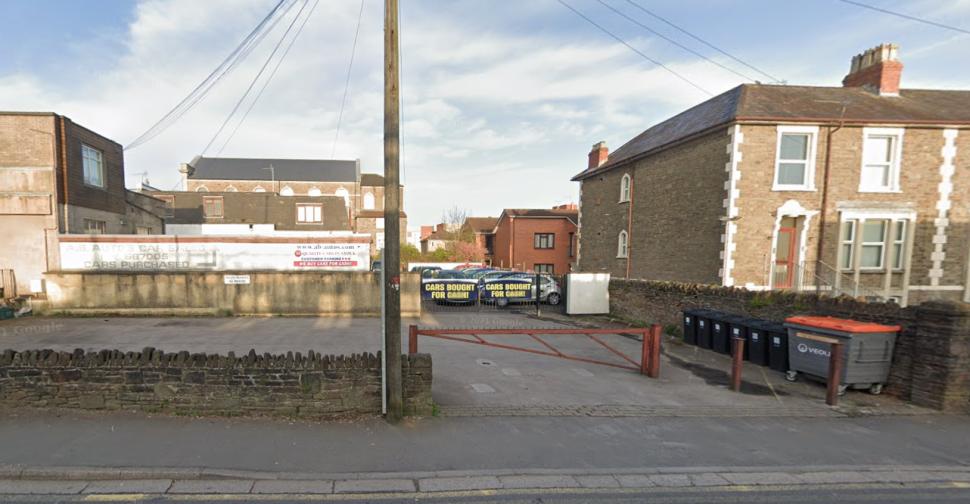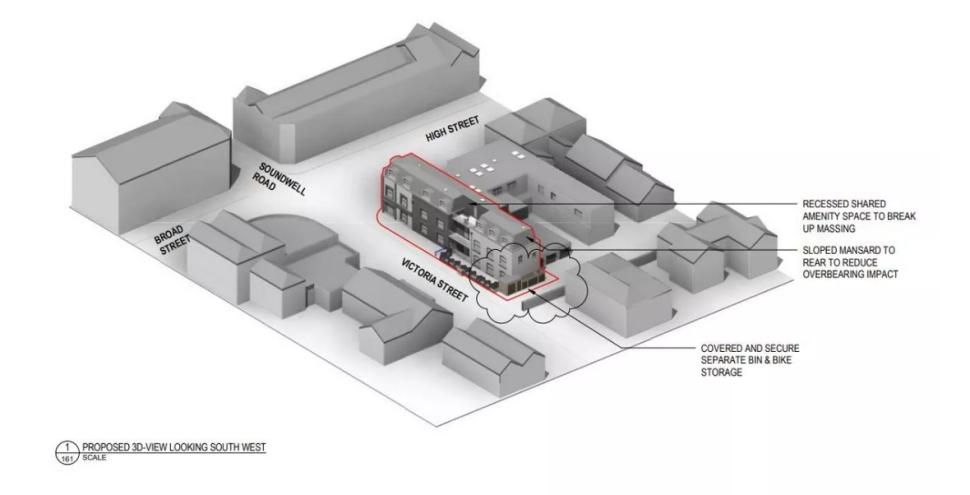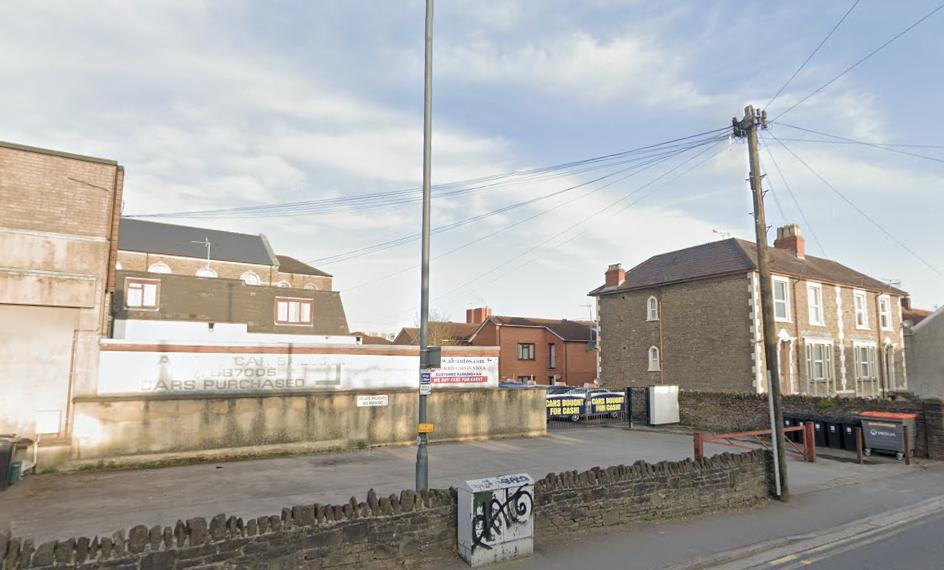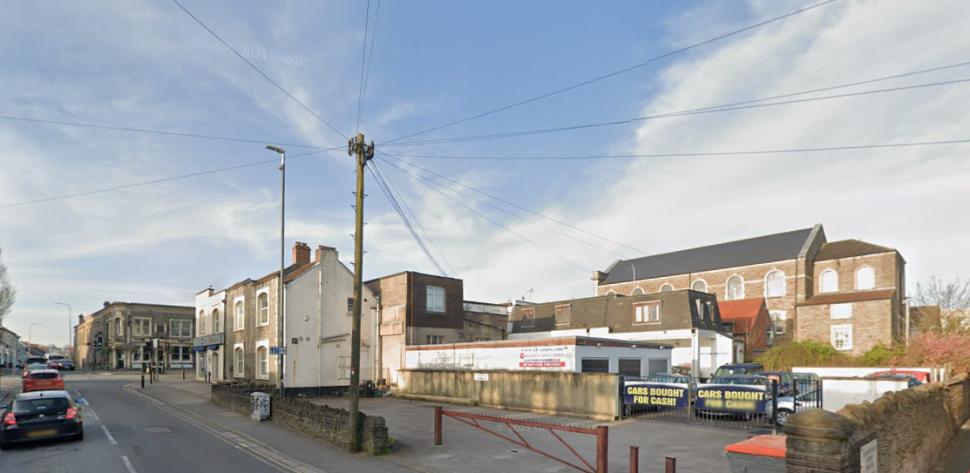- News
- Reviews
- Bikes
- Accessories
- Accessories - misc
- Computer mounts
- Bags
- Bar ends
- Bike bags & cases
- Bottle cages
- Bottles
- Cameras
- Car racks
- Child seats
- Computers
- Glasses
- GPS units
- Helmets
- Lights - front
- Lights - rear
- Lights - sets
- Locks
- Mirrors
- Mudguards
- Racks
- Pumps & CO2 inflators
- Puncture kits
- Reflectives
- Smart watches
- Stands and racks
- Trailers
- Clothing
- Components
- Bar tape & grips
- Bottom brackets
- Brake & gear cables
- Brake & STI levers
- Brake pads & spares
- Brakes
- Cassettes & freewheels
- Chains
- Chainsets & chainrings
- Derailleurs - front
- Derailleurs - rear
- Forks
- Gear levers & shifters
- Groupsets
- Handlebars & extensions
- Headsets
- Hubs
- Inner tubes
- Pedals
- Quick releases & skewers
- Saddles
- Seatposts
- Stems
- Wheels
- Tyres
- Health, fitness and nutrition
- Tools and workshop
- Miscellaneous
- Tubeless valves
- Buyers Guides
- Features
- Forum
- Recommends
- Podcast
news
 AB Autos and proposed development site (Google Maps)
AB Autos and proposed development site (Google Maps)Bicycle storage at new flats could push car salesman to legal action over dispute it would "block access", as development to offer no car parking but residents to receive bike shop discount instead
The owner of a car dealership has threatened legal action over bicycle storage that he believes will "block access" to his showroom if a development of five new flats is built next to his business, with new residents to not have any car parking spaces and instead to receive bike shop discounts and cycling leaflets.
James Brayley is the owner of AB Autos on Victoria Street in Bristol and says the proposal would "clearly" be in breach of an agreement his father made in 1994. South Gloucestershire Council has granted planning permission for the flats to be built on the corner of the High Street and Victoria Street, an extra floor to be added to the existing two-storey building and a three-storey extension to be constructed in the existing car park, Bristol Live reports.
At the back of the building, near the gates to AB Autos, it is proposed that a "covered and secure separate bin and bike storage" facility shall be installed, the part of the development that Mr Brayley has objected to as it would make it "extremely difficult for myself and my customers to gain access to my business".
"In 1994, my late father came to an agreement with the then owners of 141 High Street that we would have permanent and unrestricted right of way over the first seven metres of the boundary wall from 1 Victoria Street. This is registered with the Land Registry," he said.
"The proposal to locate the cycle and bin store on my right of way clearly breaches this agreement. If the planning permission is granted, it will be extremely difficult for myself and my customers to gain access to my business.
"If the plans are not revised, I'll have no choice but to seek an injunction through the courts. I would suggest the developer finds an alternative location for the bin and cycle store, not on my right of way."
With the new flats to be built on the site of a current car park, there will be no vehicle parking spaces available to residents, the tenants reportedly to instead receive bike shop discounts and cycling leaflets.
The council said its planning officers had checked with the Land Registry and found that the entire site of the proposed development is owned by the applicant, casting doubt on Mr Brayley's comments.
Duncan Cryer, a director at Cryer & Coe Architects, explained the decision to move away from building flats offering on-site parking: "10 years ago, we would expect a typical housing application to include parking, and office parking in particular in the centre of Bristol was in very high demand. However, over the last 10 years we've seen a significant shift in this.
"Offices in the centre of town, a lot of them are now giving over car parking spaces to cycling facilities, cycle storage, changing rooms, showers, tool stations. We're seeing a significant uplift in sustainable transport measures and a decrease in parking demand.
> London office ditches 16 car parking spaces... to make room for 70 bikes
"The site is in easy walking distance to the High Street, Page Park, a doctor's surgery, dentist and leisure centre. The Bristol to Bath cycle trail is about 800 metres south-west of the site, as well as two other cycle routes approximately half a mile away.
"For trains, you've got Bristol Temple Meads and Bristol Parkway both within a half hour cycle or easy bus ride. While it hasn't got any car parking spaces, in such a location we should probably be questioning why any project like this would have parking."
Dan is the road.cc news editor and joined in 2020 having previously written about nearly every other sport under the sun for the Express, and the weird and wonderful world of non-league football for The Non-League Paper. Dan has been at road.cc for four years and mainly writes news and tech articles as well as the occasional feature. He has hopefully kept you entertained on the live blog too.
Never fast enough to take things on the bike too seriously, when he's not working you'll find him exploring the south of England by two wheels at a leisurely weekend pace, or enjoying his favourite Scottish roads when visiting family. Sometimes he'll even load up the bags and ride up the whole way, he's a bit strange like that.
Latest Comments
- Rendel Harris 49 min 22 sec ago
It can be viewed in all its glory here, happy shopping!
- anotherflat 1 hour 44 min ago
That sign is pretty clear!...
- chrisonabike 3 hours 2 min ago
What about all the computer misuse? Stop with the downloading already!
- brooksby 3 hours 25 min ago
"Professional Triangle tire Punctured tire Nail for Spike Anti-Theft car Safety Emergency car" Sorry, but WHAT??
- HollisJ 5 hours 19 min ago
Have you seen the size of Micras these days? Now, it it were a Micra from the 80s...
- thax1 6 hours 27 min ago
Not quite long enough for him to have a think about what he'd like to say on stage when collecting the award apparently. Which you have to love him...
- LeisureRider 6 hours 31 min ago
As an amply-figured female leisure cyclist, the comfort of a slightly downward angled saddle has long been known for avoidance of mincing one's...
- stonojnr 7 hours 8 min ago
Certainly membership trippled in numbers between 2012 to 2019.i think it's been in decline since so theydon't tend to shout about the numbers...
- OnYerBike 7 hours 52 min ago
The Sora groupset seems very expensive for what it is. Even without going down the AliExpress route, you can get 11spd 105 for £360 (https://www...



Add new comment
16 comments
It sounds very much as if this is an argument about land rights and access, not about bikes or cars. It feels a bit like the Daily Fail whipping up anti-cyclist rhetoric seeing it reported here.
It's a story about a council encouraging new buildings for cyclists rather than drivers. I for one am all for it and I'm glad roadcc has let us know about it.
It took me ages to make sense of the story, because the bit about having bike parking is irrelevant to the issue about access.
I think it's great they are building flats with good cycle storage for those who don't drive, but do cycle, and appreciate that in a car centric world that alone might be a story, but would it be fine to build over the contended piece of land for something else?
Used car salesman is a complete attention-seeking plank.
Planning permission does not override civil law, boundaries, agreements etc. His matter is "not a planning consideration".
If he has an agreement in the deeds binding on subsequent owners, he needs to enforce his rights through the civil courts.
Fopdoodle !
Most, if not all car sales businesses spill over from their premises onto surrounding streets pavements and cycle paths. One local to me have been fined for contravening planning, but this seems to be cheaper than renting more/larger premises as it hasn't stopped them doing so. Car salesman are some of the least likely people to garner any sympathy from me.
From the plans it looks like he will still have access to his yard and the developers will say they are honouring the easement. The problem might be the way he is currently using the additional space as seen in the satellite photo.
Auto Sales guy has everything covered and legal from his standpoint. Where's the story? I'm sure he'll take it on the chin if it all goes tits up too.
I suspect that the agreement may have been more of a "handshake down the pub" and never actually formalised (pretty sure the council planning officers might have noticed it…).
So what's the proposed width of access to AB Autos?
Assuming the road entrance gate is moved adjacent to the boundary wall, why is 7m width still needed for motor vehicle acces?
Too much vagueness!
Hmmm. Car Saleman or Planning Officer. Who to believe....thats a tricky one...
Methinks the car salesman has no understanding of what the term "right of way" means in law, nor of property law, easements etc.
His late father may well have had an agreement with the former landowner, but unless the enhanced terms of that easement was legally formalised and written into the deeds of both properties, Mr Brayley, for right or wrong, doesn't have much of a case.
It's refreshing to see flats being proposed which support public and active travel options. I wonder if it makes a discernable dent in the asking prices of the properties
Years ago a small block of flats was built on an empty plot behind the car park attached to the offices where I worked.
Permission had been granted to build because they offered no car parking, only a bike store. The building was literally a five minute walk from Broadmead (one of Bristol's major shopping areas) and the city's bus station.
All that happened after people moved in was that our office car park found itself regularly filled with cars belonging to the people in the flats…
It might reduce the price, but that's good news for those who don't need or want a car, and would otherwise be forced into paying for a parking space they won't use.
Obviously we only have the snippets of information from the newspaper report, but Mr Brayley might be correct.
Firstly, it is the council's reply that makes no sense legally. The council says they "checked with the Land Registry and found that the entire site of the proposed development is owned by the applicant" - but an easement doesn't affect ownership. The appicant would be recorded as owning the land even if there was an easement over it.
And, even if the easement was never formally recorded (although Mr Brayley claims it was), if the land has been used for access for 30+ years, it is possible that Mr Brayley could apply for a Prescriptive Easement now.
(for the avoidance of doubt, I am very much in favour of new developments prioritising active travel over car parking, but that doesn't change the law).
My understanding is one reason for making an agreement for usage may be to avoid a prescriptive easement/ROW due to usage.
I.e. an agreement that you can use it as long as the owner doesn't need it prevents right of way developing as a direct result of usage.